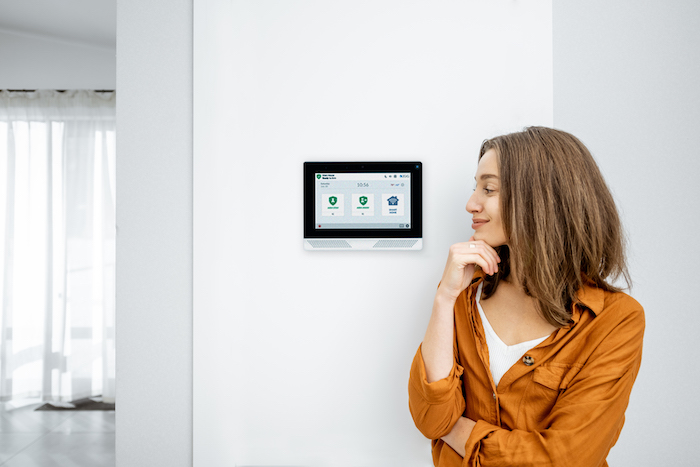If you are a homeowner who likes keeping up with the latest trends in technology chances are that you already have a Home Security System Installed. You probably have cameras surveilling your home from multiple vantage points and you might even have sensors installed at those easy-to-get-in vulnerable corners.
If you belong to the paranoid bunch, like this scribe, you might even have transformed your phone into a security monitor through which you can take periodic peaks into your home just to make sure everything (and everyone) is ok.
Don’t worry, you won’t find any judgments here, your actions make complete sense. Home invasions or burglaries are the most common type of reported crime in the United States. And it’s only natural that tech-savvy homeowners want top-notch state-of-the-art protection for their homes.
In addition to this standard security set-up, several careful homeowners also choose to include smoke, fire, and carbon monoxide sensors designed to ring the alarm in case of an emergency. After all, robberies are not the only threat to the security of your home.
The U.S. experiences over three hundred thousand home fires every year with some 75 percent of all civilian fire deaths taking place in the home. Fire is a serious threat to the security of your home and you’ve not gone overboard by choosing to have fire sensors installed.
In short, deploying technologies to protect your home against potentially deadly and in most cases, unforeseen events like robberies and fires is the best form of insurance you can acquire. Especially when these systems are so cheap with providers like Smithville Internet offering home security and internet packages for as low as $120 a month.

My only question is, why stop at just automating your home security alone when you can automate every aspect of your house. After all, we live in the era of ‘Smart Stuff’, our phones are smart, our ID documents are smart, our cars are getting there and even our cities are now ‘Smart Cities.’ So, in a world where everything is smart, why is your home still dumb.
So here is a brief breakdown of what smart houses are, how they are taking over, and most importantly how they are injecting even more convenience, or laziness, into our lives.
SMART HOUSES EXPLAINED
Smart houses are not a novel idea and are by no means technologically advanced robots like the advertisements make them sound.
In technical terms, home automation merely refers to installing a network of smart devices in your home that operate themselves. Normally these devices are connected to each other and the internet so that they can be controlled remotely and share information amongst themselves.
Moreover, these devices may also take certain small decisions on their own. Sticking to the home security system’s analogy many modern security systems are intelligent enough to deactivate themselves when you are close to your home.
And the best part, many of these systems are also self-learning which means that they may not require redundant orders from you over and over again. So, for instance, your smart thermostat might know what temperature you prefer at what time of the day and may not wait for direct instructions from you.
In simple terms, if you wake up every day and ask Alexa to make you a perfect cup of coffee or can converse with your home theater, or if your house lights, fans, and even water taps are perceptive enough to know when you are away and shut down on their own, your home is already pretty smart.
Apply this concept to each and every aspect of your house and you get a fully Automated Smart Home, not overwhelming at all right?

SOME KEY ADVANTAGES OF AUTOMATED SMART HOMES
Well if I were to summarize the advantages of smart homes in three words I’d probably say, ‘Comfort, Comfort, and Comfort.’ Fairly self-evident right? If your home can perform most mundane tasks on its own you are free to either laze around or invest in more productive activities.
Another slightly subtle advantage is the money these systems end up saving you. I know if you just got back from the tech shop after buying a few smart devices for your home you’ll probably call me crazy. But hear me out. We all know that cutting-edge tech is expensive.
But it’s just a one-time cost. After you’ve made that investment these systems are going to stop eating into your pockets and will save you money in the form of lower electricity and heating bills.
And in many cases, these systems may help replace your housekeeper or other house help saving you wards of cash each month.
Smart Homes Owners also generally have to pay lower insurance premiums because the house is considered secure by the providers.
And finally, perhaps most importantly, these systems will help boost the price of your home on the market, so you can always recover the cost of updating your house to a smart one by selling it for a higher price.

WRAPPING UP
Technology has effectively permeated into every aspect of our lives. From the latest iPhone to the upcoming Tesla, futuristic smart technology is becoming the new norm. Yet many people hesitate when it comes to deploying the same technology to upgrade their home experience. The reason, the tech can be pretty awe-inspiring and intimidating. But it does not have to be. Most of us already rely on technology to ensure the safety of our homes when we are not around. Automated Smart Homes are just the next logical step in this tech-fueled evolution of our homes.
